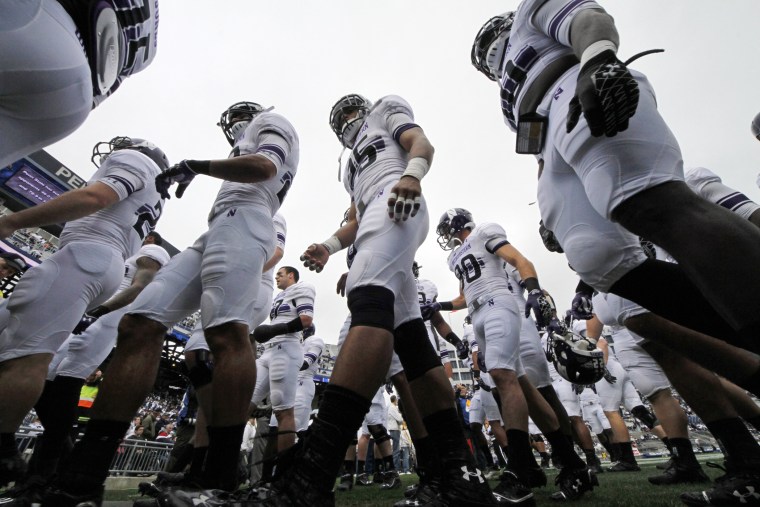NCAA President Mark Emmert outlined just how dramatic a change the unionization of student athletes would be for collegiate sports. "It so fundamentally changes the nature of what college sport is about and it blows up what is one of America's iconic activities," Emmert said on CBS's Face the Nation, discussing this week's court ruling that Northwestern University football players demanding the right to unionize do indeed have that right.
Emmert discussed the logistical complexities of turning student athletes into unionized employees of universities, from tax questions (Emmert figures a Northwestern scholarship to be worth $75,000 per year) to the nature of the relationship between student and school. "We don't even know what that looks like. If they drop a ball, do they get fired? How do you recruit them? Do you hire them? Do you trade them? What does that relationship look like is anyone's guess now."
What else makes the right to unionize so threatening to the current system is, according to Emmert, that much of the money made on the high profile college sports is used to pay for the less lucrative sports:
The billions of dollars that come in, and it is a very large amount of money that universities receive for intercollegiate athletics in two sorts, football and basketball, that also is what drives and pays for all of the other expenses in intercollegitate athletics. So track and field, soccer, women's volleyball, women's basketball... all of those sports are paid for by the revenue that comes in from two sports that drive all of that activity.So the notion that somehow universities are taking that money and putting it in the bank is utterly erroneous. They're using it to pay for nearly a half a million student athletes.
And athletes on these teams would likely have the right to unionize as well.
Emmert says the NCAA is already working on increasing concessions to student athletes while the case moves through the appeals process, possibly to the Supreme Court. Increasing the size of a scholarship to cover "full cost of attendance," more reasonable time constraints so athletes have more time for academics, and ensuring the health and wellness of student athletes are among the changes the NCAA hopes to make in the "next few months."
